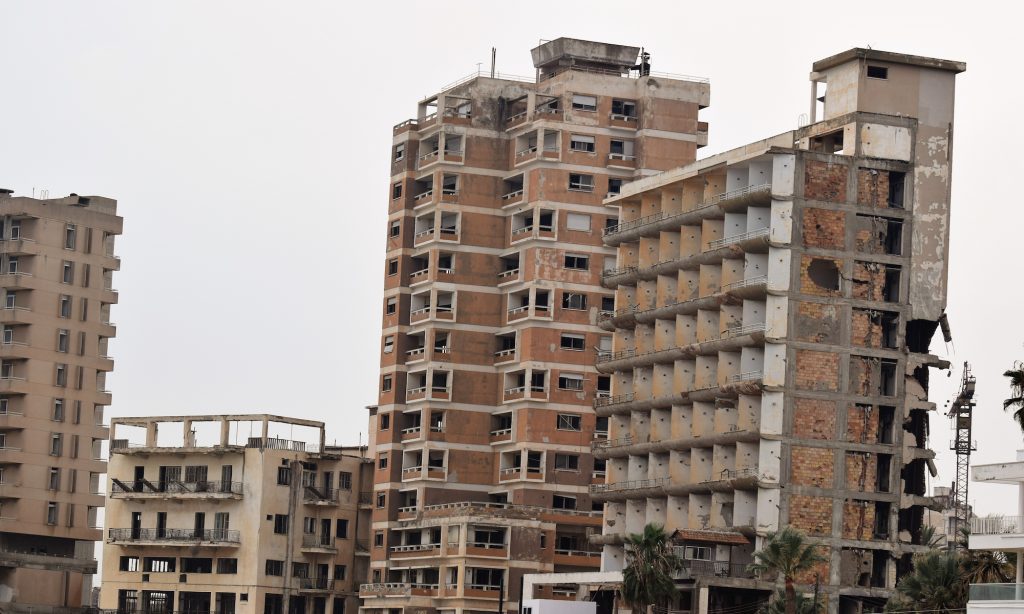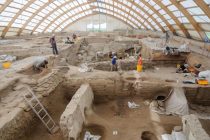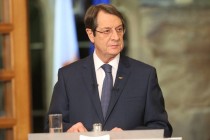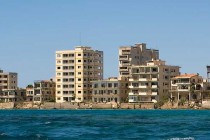Controversial new moves that could lead to the reopening of the ‘ghost town’ of Maraş in the Turkish Republic of Northern Cyprus (TRNC) have been announced by Deputy Prime Minister and Minister of Foreign Affairs Kudret Özersay, spooking Greek Cypriot officials.
A group of experts are to be sent in to conduct a “scientific inventory” of Maraş, a former top tourist resort on the eastern coast of Cyprus next to Gazimağusa that has been fenced off for 45 years, Prof Özersay said on Tuesday, 18 June.
The team will be tasked with examining land registry records, checking the state of crumbling buildings and other property, assessing environmental risks, and establishing which properties belong to the Turkish Cypriot Islamic foundation Evkaf.
The outcome of the research will then “determine the policies that will be followed and the rights of former residents and Evkaf”, Özersay said, without giving a timeframe for the plans.
The “concrete steps” were approved by the Council of Ministers, the minister added during an on-camera briefing to reporters.
While Maraş, also known as Varosha, forms part of the TRNC’s territory, it is classed as a military zone.
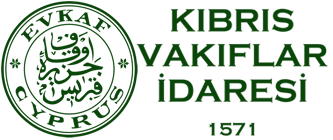
Its Greek Cypriot inhabitants fled in August 1974 as Turkish troops advanced east across the island in response to a Greek-led military coup to annex Cyprus to Greece and deadly attacks on the island’s Turkish Cypriot population.
Prior to that Maraş, with its golden beaches and high-rise hotels, had been the island’s premier holiday destination.
It was sealed off, however, so that the Turkish Cypriots could use it as a bargaining chip in subsequent peace negotiations with the Greek Cypriot side.
But it has remained uninhabited ever since, with only Turkish military and United Nations personnel granted access.
Mother Nature has slowly taken over the town, said to be infested with rats and snakes, meaning any efforts to resettle it would encounter immense challenges and huge costs.
In May 1984 the UN Security Council, in resolution 550, said it was “deeply concerned by recent threats for settlement of Varosha by people other than its inhabitants”.
The resolution, subsequently reaffirmed by the UN, said it considered attempts to settle “any part of Varosha by people other than its inhabitants as inadmissible” and called for the “transfer of this area to the administration of the United Nations”.
Maraş would have been given to South Cyprus in 2004 as part of territorial adjustments outlined in the Annan Plan, but the UN settlement blueprint – approved by Turkish Cypriots – was overwhelmingly rejected by Greek Cypriot voters in a referendum, meaning the handover never took place.
Maraş / Varosha remains a ghost town since the 1974 Cyprus War
Issuing a written statement the day after Prof Özersay’s announcement, Prime Minister Ersin Tatar said that “all the rights and interests” of the former residents of Maraş would be “taken into account when the decision to reopen the closed city is taken”.
It has previously been suggested that up to 70 per cent of the land in Maraş was “illegally transferred” from the 448-year-old Evkaf to Greek Cypriot ownership during British colonial rule of Cyprus between 1878 and 1960.
A Greek Cypriot company, KV Mediterranean Tours, which says it owns a building in Maraş, has applied to the European Court of Human Rights after the TRNC Supreme Court ruled that Evkaf must be included as a third party to a compensation claim the firm lodged with the Immovable Property Commission.
“As it is clearly stated in our government programme our primary goal is to protect the legitimate rights and interests of our people on the Cyprus Problem,” Mr Tatar said.
“Our government, in collaboration and cooperation with Turkey, is determined to put an end to the Greek Cypriot side’s efforts to use the status quo against Turkish Cypriots.
“We shall pursue a proactive policy in harmony with the international conjuncture and unfolding developments.”
The announcement was slammed by an aide to Greek Cypriot leader Nicos Anastasiades as “completely unacceptable”, according to media in the South.
Undersecretary Vasilis Palmas said the Maraş move would create “certain partitionist positions in the particular issue” and claimed Turkey was behind the decision.
There was also speculation in the local media that the question of Maraş and an update on plans to allow the return of Maronites to certain villages in the TRNC – details of which were also revealed by Prof Özersay – had been discussed during a “secret” meeting that took place between the Deputy PM and Anastasiades earlier this month.
Both men sought to play down a dinner date, where they were accompanied by their wives and “host” Yiannakis Moussas, the Maronite representative in the South Cyprus parliament, describing it as merely a “social” event.
Media have speculated whether Maraş was discussed at “secret” meeting between TRNC Foreign Minister Kudret Özersay & Greek Cypriot President Nicos Anastasiades earlier this month
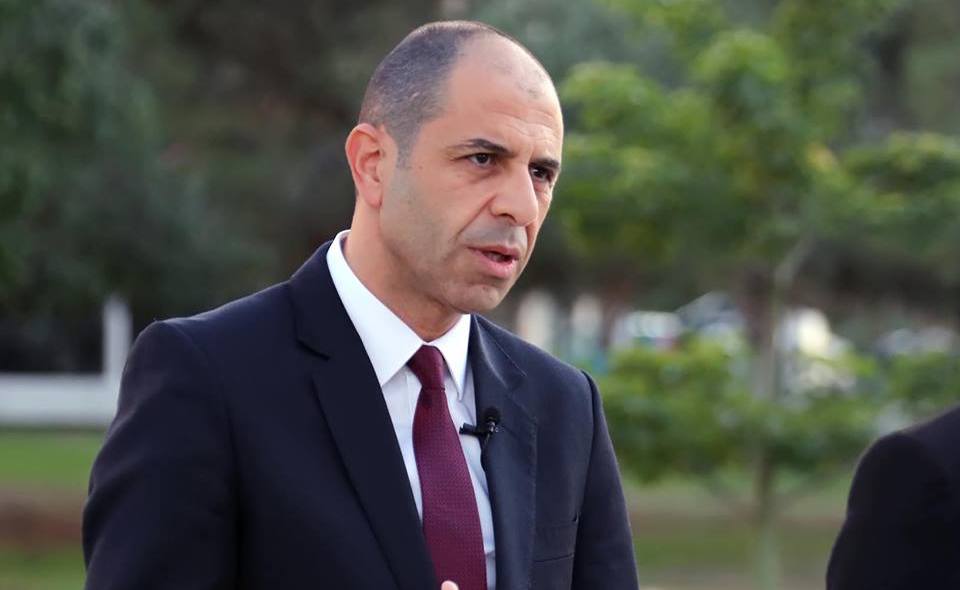
The gathering took place on 4 June, reports said, but only recently came to light when details and a photo were leaked to the media – sparking a furious response from President Mustafa Akıncı, who said he had not been informed about the meeting by Prof Özersay.
“The fact that no information was given to the President by the Foreign Minister before or after this meeting, means violation of the state practice,” Mr Akıncı’s spokesman Barış Burcu said.
“It also goes against the values of political ethics… The unacceptable stance of the Minister of Foreign Affairs of not informing the President with regards to his recent contacts, is disappointing.”
Mr Anastasiades also came under fire from Greek Cypriot main opposition party Akel, who accused him of “flirting with a two-state solution” – a reference to the policy of the current TRNC coalition government.
Mr Moussas said on Wednesday that the gathering had been a “private, family dinner” and that there had been “no discussion on a two-state solution or any sort of negotiations”, Greek Cypriot media reported, and that the timing of Özersay’s announcements had been “mere coincidence”.
Mr Anastasiades refused to give any details, saying he did not need to “get permission” when deciding who to meet, “especially when it is a purely social event”.
Prof Özersay said he had informed Mr Tatar and the Cabinet about his dinner with Mr Anastasiades, pointing out that Mr Akıncı had not briefed him when he had an “informal” meeting in the past with Akel leader Andros Kyprianou.
“There is nothing more natural than getting together with Anastasiades, who I have known for a long time from the negotiating table, and our wives,” he added.
The political row comes with 10 months to go until presidential elections in the North Cyprus.
Prof Özersay was a challenger to Mr Akıncı in the 2015 vote and is widely expected to launch a second bid to become TRNC leader next year.
Main picture: Abandoned buildings in Varosha/Maraş © Nataliia Tosun / Shutterstock

